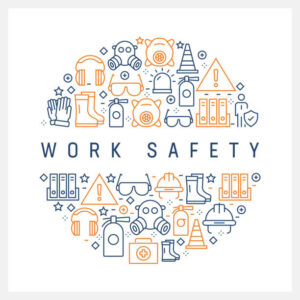
When bad medical advice gets you dismissed
A worker who was dismissed due to medical advice that claimed he was permanently incapacitated has been reinstated. The Fair Work Commission found that the employer relied on incorrect medical advice to dismiss the worker. That is, medical advice it had solicited from a doctor. And that it had ignored the correct, independent medical advice, referring to it as merely an “expression of opinion.”
This case – Mr Anthony William Latham v Illawarra Coal Holdings Pty Ltd [2023] – shows how employers can manipulate medical advice to suit their own ends. Let’s take a look at the events of this unfair dismissal case.
Employer dismissed worker based on bad medical advice
Anthony Latham started working for Illawarra Coal Holdings in 1998. He was hired as a longwall fitter and machinist at the Kemira Colliery on the NSW south coast. Not long after he started, Mr Latham suffered a workplace accident while moving some pipes. It caused him to injure his shoulder and back which required surgery.
By 2017, Mr Latham had worked his way up to the position of night shift general underground deputy. His role required contributing to coal production by managing workers and ensuring compliance. In 2019, Mr Latham underwent heart surgery. He was later given a medical all-clear to return to the workplace. But Illawarra Coal directed him to undergo an assessment via an independent rehabilitation company.

Worker directed to undergo tests
During a functional assessment in September 2019, Mr Latham was asked to lift a 37-kilogram weight up to his shoulder. While he did this, he felt an acute pain in his shoulder. He subsequently had to have shoulder surgery in February of the next year. He did not return to the workplace until August 2020. But after returning, he was told by Illawarra Coal not to perform any of his duties until a further assessment of his working capacity was done.
In November 2021, Mr Latham underwent a spinal decompression procedure with a neurosurgeon who specialised in spinal injuries.
Medical advice deems Mr Latham “permanently incapacitated”
A key event in this case took place around three months post Mr Latham’s spinal surgery. This was when Illawarra Coal organised an independent medical examination of Mr Latham. It was conducted by an occupational physician, who told the company that Mr Latham was “permanently incapacitated for work within his pre-injury role.” As such, he recommended three “critical and unavoidable requirements” that would limit Mr Latham in his role.
The physician said that each time Mr Latham travelled in a vehicle, he could only do so for a maximum of 40 minutes. This was because it exposed him to “whole body low frequency vibration.” The physician also said that Mr Latham could not perform “repetitive forward bending at the waist, or repetitive twisting of the spine.” And that he could not lift any item more than 15 kilograms between shoulder and knee height, and over 10 kilograms below the knee.

Conflicting medical advice
However, when Mr Latham underwent an assessment with his sports physician, he received a very different prognosis. The sports physician’s medical advice said that he was able to perform “pre-injury unrestricted duties at work as a mine supervisor.” The contradiction caused alarm for Illawarra Coal, who sent the sports physician’s report to the occupational physician. The latter disagreed with it, maintaining that Mr Latham was “permanently incapacitated.” In June 2022, the occupational physician’s medical advice to the company was that Mr Latham’s MRI scans displayed “multi-level degenerative changes” in his spine.
Mr Latham is dismissed
Given these statements, the occupational physician told Illawarra Coal that Mr Latham could not assume his pre-injury position. He highlighted his “increased risk of reinjury and an increased risk of further surgery.” Based on the physician’s advice, Illawarra Coal made the decision to dismiss Mr Latham. He subsequently made an unfair dismissal application with the Fair Work Commission.
Fair Work Commission hears unfair dismissal case
At the hearing, the occupational physician’s medical advice came under the spotlight. He had told the Fair Work Commission that Mr Latham was at significant risk of reinjury, which could have “catastrophic results.” However, the physician came clean and said that he had not seen Mr Latham’s pre-operative CT scans. And he was “uncertain” of whether he had actually viewed his MRI scans or had viewed them “based on a photograph of the MRI scans on the [deputy’s] mobile.”

Neurosurgeon skewers physician’s medical advice
In March 2023, the neurosurgeon who performed surgery on Mr Latham stated that minimally invasive techniques for a spinal decompression procedure would result in “minimal increased risk of future injury.” The neurosurgeon told the Fair Work Commission that the physician’s advice was “simply ludicrous.” And that “the reporting of the pre-operative MRI scans is ‘grossly overstated.’” He also stated that “the degree of severity [of degenerative changes] reported is simply not the case.”
The Fair Work Commission heard that Illawarra Coal had received the neurosurgeon’s medical advice following Mr Latham’s dismissal. The company said that the medical advice “cannot be accepted” as relevant to whether Mr Latham had been dismissed for a valid reason. This was because it felt that the medical advice was an “expression of opinion.” And that the neurosurgeon did not have the “correct expertise.”
But the Fair Work Commission disagreed with this line of thought. It stated that medical evidence, “even if obtained after dismissal,” must be applied to Mr Latham’s state of health at the time of his dismissal. The neurosurgeon’s medical advice was favoured by the Fair Work Commission. This was because he had assessed the CT and MRI scans, as well as an x-ray. while the physician had not seen the CT scan and x-ray and was not sure if he had seen the MRI.
The Fair Work Commission also said that the neurosurgeon was “uniquely placed” to comment on Mr Latham’s spine. This was because he had undertaken the procedure on him and he had more experience reviewing spinal imagery.
Fair Work Commission rules unfair dismissal
Based on the neurosurgeon’s medical advice, the Fair Work Commission found that Mr Latham had not experienced “spinal incapacity” at the time when he was dismissed. It therefore ruled that Illawarra Coal did not have a valid reason to dismiss him. The Fair Work Commission ordered the company to reinstate Mr Latham. And to back-pay him to his dismissal date, subtracting his dismissal payment.

Worker dismissed after employer ignored medical advice
Another unfair dismissal case where an employer failed to recognise medical advice is Bronte Cooper v Balfours Bakery Pty Ltd. Bronte Cooper began working as a delivery driver for Balfours Bakery in May 1991.
Critical to this case was that Mr Cooper’s employment was governed by the Balfours Pty Ltd Enterprise Agreement 2005. This enterprise agreement included provisions for income protection insurance through International Underwriting Services Pty Ltd (IUS). This insurance policy offered income protection for non-work-related injuries or illnesses, covering up to 24 months.
While working at Balfours, Mr Cooper lodged 25 workers’ compensation claims and 40 incident reports. However, these were all eventually resolved with the involvement of his union.
Worker receives medical advice not to work
The crucial turning point in Mr Cooper’s employment came shortly after his return from annual leave on 8 April 2010. He told a Balfours employee relations representative, Ms Fonseca, of a shoulder injury sustained while on leave that rendered him incapable of performing his duties. Mr Cooper said that he had received medical treatment during his leave. And that the medical advice he received from his doctor was that he was unfit for work.
Mr Cooper subsequently took sick leave and applied for income protection insurance. He submitted his income protection insurance claim form on 20 April 2010. This confirmed that his injury was not related to work and that he did not possess any workers’ compensation claim.

Income protection and ongoing payments
Mr Cooper started receiving income protection insurance payments. He regularly provided medical certificates and assessments to IUS. And Ms Fonseca engaged in monthly conversations with him regarding his medical condition. In June 2010, Balfours learned that Mr Cooper had declined to participate in a work capacity assessment arranged by IUS.
Balfours had an internal policy that added another layer of complexity to the situation. The company did not offer restricted duties for employees covered by IUS insurance.
On 12 November 2010, Balfours told Mr Cooper that unless he could return to work within a reasonable period, he might be dismissed. Six days later, Balfours sent a letter to Mr Cooper giving him a final opportunity to provide any additional relevant information regarding his capacity to return to work. They mentioned that in the absence of new information within seven days, he would likely be dismissed.
Balfours receives medical advice
This unfair dismissal case took a contentious turn on 23 November 2010. This was when Mr Cooper provided Ms Fonseca with a WorkCover claim form, indicating that he had injured his shoulder on 4 February 2010. It also confirmed his incapacity for work from 8 April 2010. However, Mr Cooper’s workers’ compensation claim was disputed, and on 7 February 2011, Balfours was informed that the claim had been rejected.
In February 2011, medical advice concerning Mr Cooper was provided to Balfours by an occupational physician. Mr Cooper had been referred to this physician via the WorkCover claim manager. The physician’s medical advice stated that “I would anticipate a return to pre-injury duties in the foreseeable future.” The physician also stated that “I anticipate that his symptoms will decrease further and he will be able to carry out all his normal duties.
The medical advice from the occupational physician seemed to contradict that provided earlier to Balfours. Despite Mr Cooper’s ongoing payments from income protection insurance and his doctor’s uncertainty about his full return to work, Balfours dismissed him on 24 February 2011. The dismissal letter cited frustration of the employment contract as the reason.

Mr Cooper argues unfair dismissal case to Fair Work Commission
Mr Cooper subsequently lodged an unfair dismissal claim. He argued to the Fair Work Commission that his injury was work-related, supported by medical advice. Mr Cooper claimed that Balfours could have provided him with restricted duty work, which they chose not to do.
In its response to the unfair dismissal claim, Balfours argued that it had no alternative but to dismiss Mr Cooper’s employment due to the frustration of the contract. Balfours also accused Mr Cooper of lying about the cause of his shoulder injury in his insurance and WorkCover claims.
Fair Work Commission rules on unfair dismissal case
The Fair Work Commission made several key findings that considerably influenced its ultimate conclusion regarding the fairness of Mr Cooper’s dismissal.
One of the most challenging aspects of the case was the conflicting medical opinions regarding Mr Cooper’s ability to return to work. The Fair Work Commission found that medical reports were “inconsistent and unreliable.” However, it was found that Mr Cooper had been unfairly dismissed.
The Fair Work commission stated that Mr Cooper’s dismissal was harsh as Balfours “failed to take proper account of the medical advice.” Namely, the medical advice “indicating that Mr Cooper’s capacity for a full return to work could be reached by his surgeon.” As a result, the Fair Work Commission ordered Balfours to reinstate Mr Cooper.

Call us for help with your unfair dismissal claim
Our team at A Whole New Approach specialises in helping Australian workers who have experienced injustices in the workplace, such as harassment, discrimination, or unjust termination. Over the last 30 years we have successfully assisted more than 16,000 employees in seeking justice through the Fair Work Commission.
We operate in every Australian state and territory and we offer a no-risk, no-fee service. But be sure to act fast, as your unfair dismissal claim must be lodged within 21 days of your dismissal. Employers are well aware of our strong reputation, and we are here to advocate for your rights. If your accused of abandonment of employment while off injuried or on sick leave, call us now.
Contact us today at 1800 333 666 for a free and confidential conversation about your specific situation.
Articles similar to: Dismissed based on bad medical advice
Medicinal cannabis and your workplace
Dismissed for not disclosing disability the harsh reality many face






